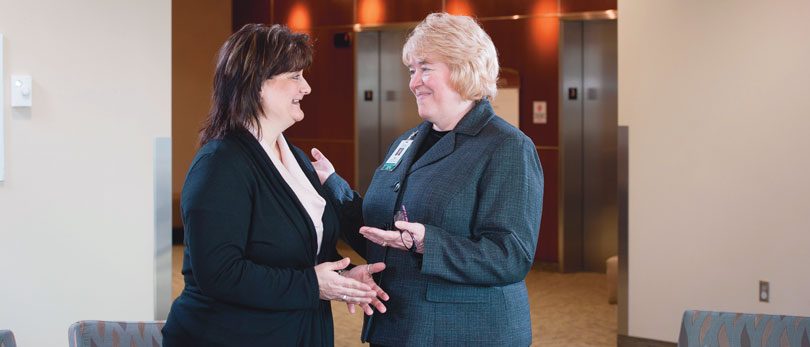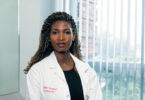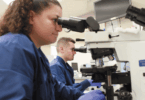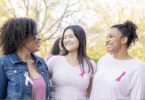According to the National Cancer Institute, an estimated 40 percent of all cancer patients report significant distress after diagnosis, which can trigger extreme fatigue, inability to cope with treatment side effects, difficulty maintaining a healthy diet, trouble with daily tasks and additional symptoms that can potentially derail recovery.
Determined to help cancer patients better manage symptoms, the UHS Cancer Survivorship Committee enhanced its cancer program with a holistically-focused pilot program, currently serving patients being treated at UHS Wilson Medical Center’s Radiation Oncology Department. The pilot program’s goal is to simplify and expedite patient access to providers such as physicians, physical therapists, occupational therapists, social workers, dieticians and meditation guides, as needed and if desired. “These services help reduce the stress and confusion all cancer patients and their family members face. It’s an important part of caring for the whole patient,” says Ruth Manzer, RN, OCN, cancer nurse coordinator.
Even tapping into these services is seamless, Ms. Manzer explains. “The oncology staff is proactive. Patients are asked if they would like to talk with a social worker, and they receive a mobility evaluation within two weeks of starting treatment. We also find that many cancer patients benefit from time with a dietician.”
Because UHS views these services as vital for a healthy mind, body and spirit, the consultations are free to cancer patients moving through radiation treatment, and all patient evaluations are conducted in the Radiation Oncology Department in conjunction with scheduled radiation therapy appointments. If further treatment is necessary, appointments are scheduled in the therapy department.
A proactive stance means that issues are often addressed well before a problem arises, says occupational therapist Nicole Keibel, OTR/L, LMT, CLT. “We want to empower patients with knowledge so they can maintain meaningful activities of daily life. That may mean preparing a nutritious meal, doing a little laundry, walking the dog or combating fatigue with exercise. In every case, the earlier we deal with a dysfunction, the better our results.”
Pulling all these services into one seamless loop that addresses a patient’s total well-being is a forward-thinking approach to cancer care, and the UHS Cancer Survivorship Committee is watching the pilot program’s results. “We’re looking at efficacy and how each patient’s quality of life is affected,” Ms. Manzer says. “Results are already impressive, and I’m hopeful that we’ll roll these services out beyond Radiation Oncology.”
HOLISTIC HELP
For more information about the cancer survivorship program, support groups and other programs that can benefit patients with cancer and their families, call Ms. Manzer at 763-5151 or visit the UHS website.







